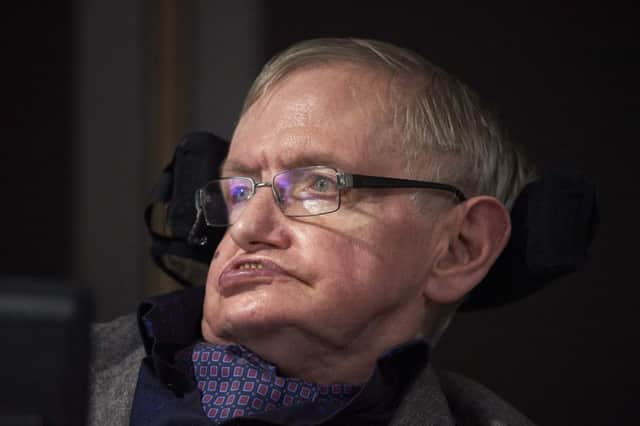Professor Stephen Hawking's triumph over MND


He survived for around half a century after being diagnosed with motor neurone disease (MND) despite being told he had just years to live when he was diagnosed.
The disease kills a third of people within a year and more than half within two years of diagnosis, according to the Motor Neurone Disease Association.
Advertisement
Hide AdAdvertisement
Hide AdYet Prof Hawking was diagnosed with the condition in his early 20s and lived until he was 76.
The condition is fatal and usually progresses rapidly, affecting the brain and spinal cord.
MND is the collective name for a group of diseases that affect the nerves in the brain and spinal cord that control movement.
The condition progressively damages parts of the nervous system, which leads to muscle weakness, stiffening and waste.
Advertisement
Hide AdAdvertisement
Hide AdIt can lead to people being unable to move, talk, swallow and eventually breathe.
Some patients suffer cognitive changes as well.
Four in five sufferers will have communication difficulties.
But the MND Association states the condition affects everyone differently – not all symptoms will affect everyone and symptoms progress at varying speeds.
MND affects around 5,000 people in the UK.
The disease can affect people of any age, but it is more likely to affect people over the age of 50.
Advertisement
Hide AdAdvertisement
Hide AdThere is no cure for MND and there is not a clear answer about what causes the condition.
According to the MND Association, there is no apparent family history of the disease in most cases. It is thought that a number of genetic and environmental factors need to be at play before the condition can develop in these cases.
The Association adds that for a patient with a family history of the condition, the disease is caused by a genetic mistake that is passed down, but other triggers may be needed for the condition to develop.
